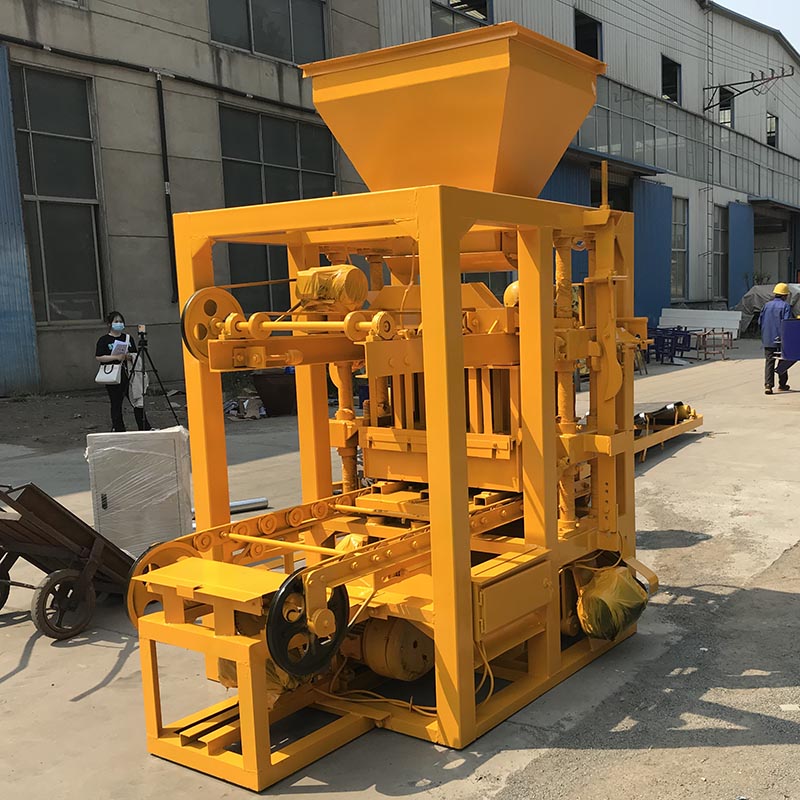
image source: Aiwei block making machines
Introduction
Mozambique, a country rich in natural resources but plagued by years of conflict and economic challenges, is experiencing a transformation in its construction sector. Central to this transformation are block making machines, which have emerged as key tools driving sustainable development, economic growth, and infrastructure improvement across the nation. This article explores the significant impact of block making machines on Mozambique’s construction landscape, highlighting their role in shaping the built environment and fostering socio-economic progress.
The Rise of Block Making Machines in Mozambique: In recent years, Mozambique has witnessed a surge in the adoption of block making machines for construction projects of various scales. Initially, manual methods dominated the production of building blocks, but the introduction of mechanized and automated block making machines has revolutionized the sector. These machines, ranging from simple hand-operated models to advanced hydraulic systems, have enabled more efficient and cost-effective production of blocks, including concrete, hollow, and interlocking varieties.
Driving Factors Behind the Adoption of Block Making Machines: Several factors have contributed to the widespread adoption of block making machines in Mozambique. Firstly, the growing demand for affordable housing and infrastructure development, particularly in urban areas, has necessitated the use of efficient construction methods. Block making machines offer a solution by streamlining the production process and increasing output, thereby addressing the housing deficit and infrastructure needs.
Additionally, advancements in technology and the availability of affordable machinery have made block making machines accessible to a broader range of stakeholders, including small-scale contractors, entrepreneurs, and community cooperatives. Moreover, the emphasis on sustainable building practices and environmental conservation has led to the preference for blocks produced from locally available materials, further driving the demand for block making machines.
Impact on Construction Practices and Quality of Infrastructure: The widespread adoption of block making machines has brought about significant improvements in construction practices and the quality of infrastructure in Mozambique. These machines have enabled builders to produce uniform and high-quality blocks with precision, leading to structurally sound buildings and infrastructure projects. Furthermore, the use of mechanized and automated machines has reduced manual labor requirements, minimizing the risk of workplace injuries and increasing overall productivity.
Moreover, the versatility of block making machines allows for the production of a variety of block types, including interlocking and compressed earth blocks, which offer enhanced thermal insulation and durability. This has led to the construction of more resilient and energy-efficient buildings, particularly in regions prone to extreme weather events and climate change impacts.
Economic Empowerment and Job Creation: The adoption of block making machines has not only transformed construction practices but has also contributed to economic empowerment and job creation in Mozambique. Local entrepreneurs and cooperatives involved in block production have seen significant improvements in income generation and business growth. Moreover, the establishment of block making enterprises has created employment opportunities across the value chain, from machine operation and maintenance to block sales and distribution.
Furthermore, the localization of block production using locally available materials has stimulated economic activity in rural areas, contributing to poverty alleviation and sustainable development. By promoting entrepreneurship and small-scale enterprises, block making machines have played a crucial role in fostering inclusive growth and economic resilience in Mozambique.
Challenges and Opportunities: Despite the numerous benefits associated with block making machines, Mozambique still faces several challenges in fully harnessing their potential. Limited access to financing, inadequate infrastructure, and the need for technical skills development pose significant hurdles to the widespread adoption and efficient operation of block making machines.
However, these challenges also present opportunities for collaboration between government agencies, private sector stakeholders, and development partners to address capacity gaps, improve infrastructure, and facilitate access to financing for block making enterprises. Moreover, investments in research and development aimed at enhancing the efficiency and sustainability of block making technologies can further drive innovation and market growth in Mozambique’s construction sector.
Conclusion
In conclusion, block making machines have emerged as transformative tools driving Mozambique’s construction sector towards greater efficiency, sustainability, and economic prosperity. By revolutionizing construction practices, improving the quality of infrastructure, and fostering economic empowerment and job creation, these machines are shaping the built environment and paving the way for a brighter future for Mozambique’s citizens. With continued investment, innovation, and collaboration, block making machines will continue to play a pivotal role in driving sustainable development and inclusive growth across the country.